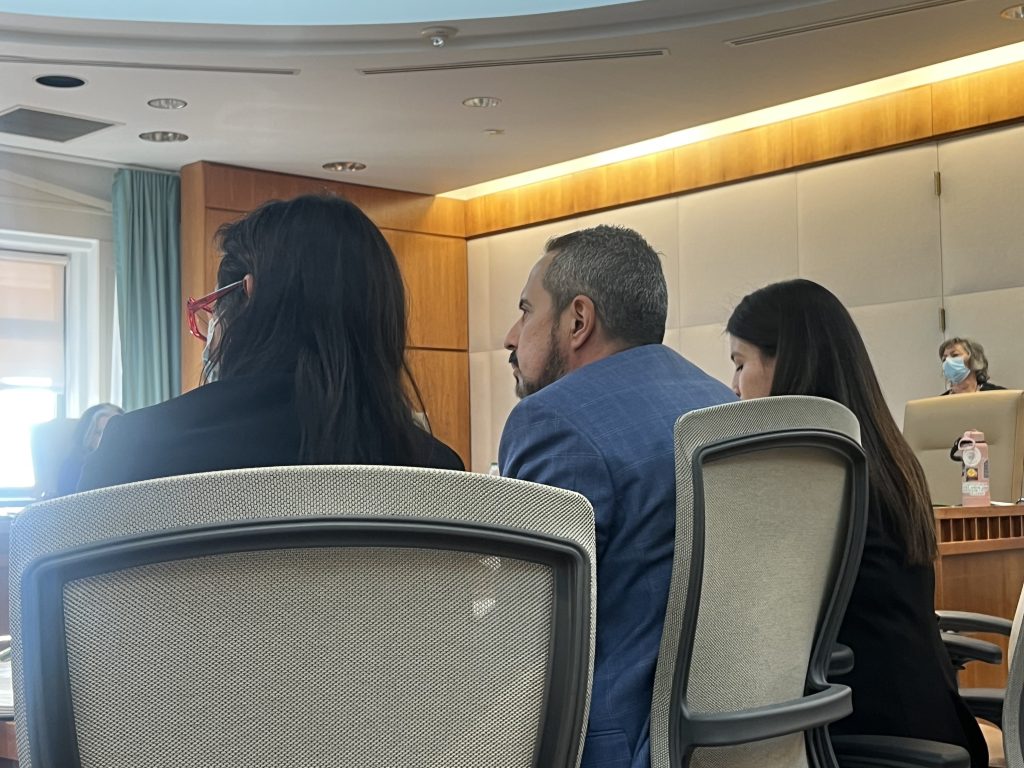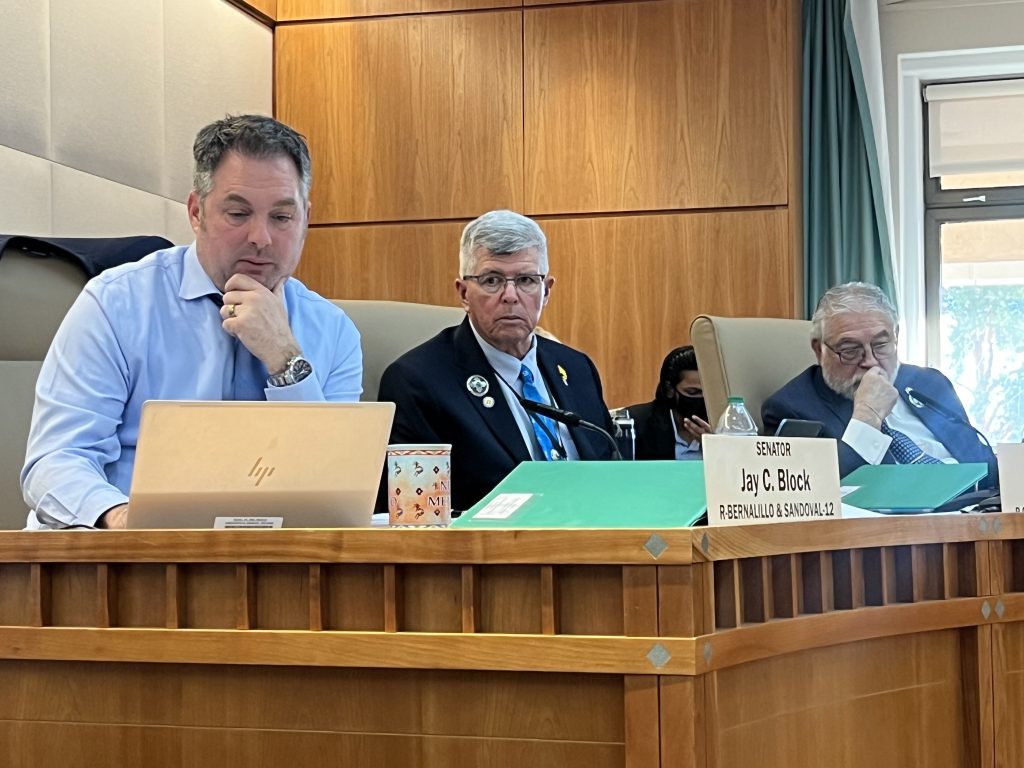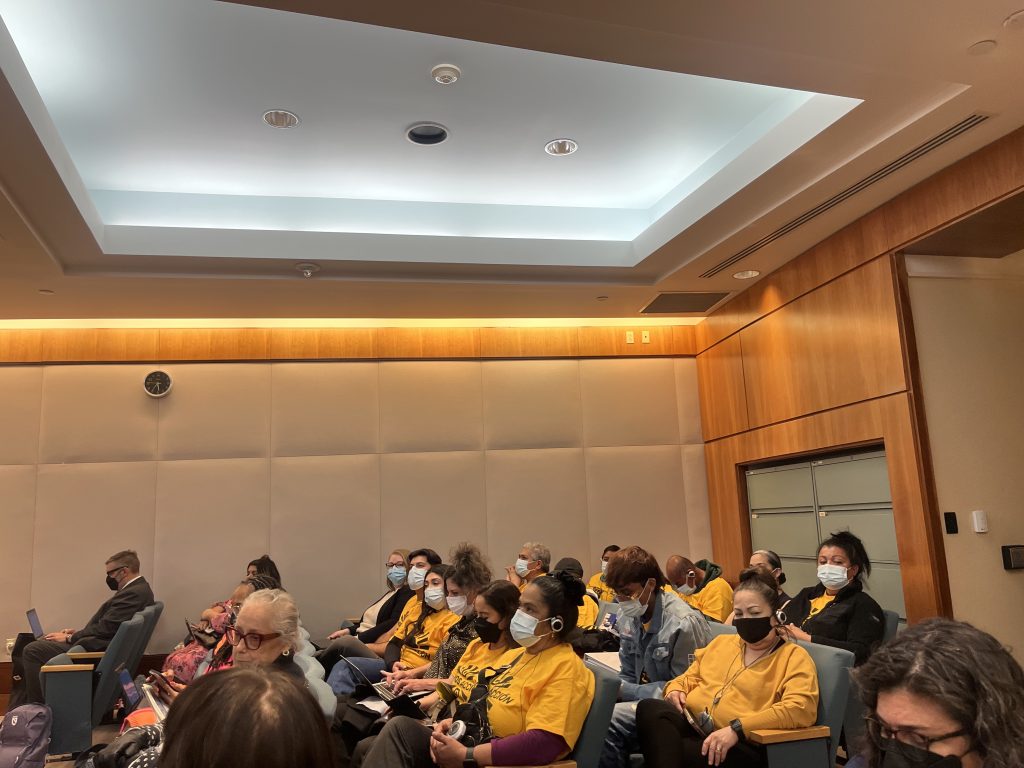Debate heats up over ICE noncompliance bill

Santa Fe, NM — A bill that would prevent state resources — such as jails and public funds and employees — from assisting ICE in enforcing federal immigration law passed in the Senate Health and Public Affairs Committee on Wednesday.
Lawmakers debated for nearly two hours over the potential consequences and constitutionality of the measure.

The Democratic sponsors stood firm, asserting that New Mexicans would not suffer from Trump administration retaliation and that this bill aligns with values of human dignity and public safety. Republicans, however, remained equally firm in their opposition to Senate Bill 250.
Sen. Gallegos (R-Eunice) and Sen. Block (R-Rio Rancho) expressed concerns that SB250 would prevent law enforcement from arresting and detaining dangerous criminals. Sen. Maestas (D-Albuquerque), a sponsor of the bill, repeatedly clarified that this was not the intent of SB250.
“Nothing in section one prohibits police or any other state resources to deal with criminals who have felony warrants or with persons who are suspected of criminal activity,” he said. “Nothing would prohibit, in that scenario, the state police working with any other agency — whether it’s DEA, FBI, ICE or whomever, in apprehending suspected criminal activity.”

Senator Nava (D-Bernalillo), a sponsor, described the bill as a public safety measure intended to prevent local agencies from investigating a person’s legal status on behalf of ICE. Maestas emphasized at one point that it would allow individuals to access use public services, seek medical care, appear in court as witnesses, and call 911 without fear.
The bill also aims to assert New Mexico’s sovereignty from the federal government, resisting forced compliance with an anti-immigration or mass-deportation agenda.
Sen. Gallegos referenced President Trump’s State of the Union Address, in which he warned that non-compliant states will lose federal funding.
“We’re going to start losing money, and where does the bleeding stop? And that bleeding is going to start right here in this room, right now,” Gallegos said. “People will look back on this and know that we were notified of the kinds of money we’ll lose federally.”
Maestas countered that such an action by a president would be illegal, noting that Trump had made similar threats during his first term, but federal funding had not ceased.
Sen. Block shared concerns about setting a precedent where lawmakers selectively enforce laws. He argues that not reporting civil immigration violations, such as overstaying a visa, while still upholding criminal law violations, could create inconsistencies.
“We’ve [lawmakers] done it so many times here in Santa Fe this session—treating everybody differently. It drives me through the roof,” he said. “Law enforcement is there to keep us safe; we’ve had millions and millions of people come to this country unvetted.”
Block acknowledged the sensitivity of the issue, sharing that his wife immigrated from China, saying it took her years, but that “she did it the right way.” He later emphasized that those opposed to SB250 are not anti-immigrant, recounting a personal story. “I was almost killed in Afghanistan, my life was saved by my Muslim interpreter, Hamraz Sumir,” he said.
Block noted that Sumir and his family were targeted by the Taliban. “I did everything I could Madame Chair and panel, to get Hamraz here, and his family, to the US. And they did it the right way.” He concluded his thoughts stressing that the US is a nation of laws and without laws there is no nation.

Sen. Sedillo Lopez (D-Albuquerque) stated that she was proud to support SB250 declaring, “We do not submit, the state of NM, to being forced to do what the federal government wants to do here,” she said. “We are not going to collaborate with an agency [ICE] that has done so much harm to our communities.”
She shared the story of one her clients, a U-Visa holder, whose home ICE agents raided without a warrant. The woman was chased, found hiding under a bed, and detained her for a week — despite ICE searching for an ex-boyfriend who had not lived there for years. The incident was recorded by the woman’s daughter.
Freshman Sen. Charley (D-Acoma) asked Sen. Nava why the bill was necessary.
Nava responded, “Understanding people who are undocumented is a complex notion and understanding immigration is another complexity. Understanding access and privilege is another one.”
Nava reaffirmed that local agencies will still be able to combat human trafficking and participate in migrant rescue operations. She cited the Tenth Amendment, arguing that New Mexico ix not obligated to cooperate with federal immigration law, and that is pertinent at a time like now.
“Where the fear is very present across our communities,” she said. “I believe that humanity is important, and I believe that respect matters.”
Sen. Charley expressed her support, pointing out that New Mexico has previously set policies independent of the federal government, such as legalizing cannabis.
“I think the questions that we’re asking this afternoon — they’re the wrong questions. It’s being asked, ‘What happens if we don’t stand down?’ not ‘What happens if we don’t stand up?’” she said. “We are a state of people in New Mexico that resist hate and embrace community care. We resist inhumanity, and we fight for one another’s dignity, and we must resist mass deportation, and continue protecting belonging in New Mexico.”
She concluded, “Yes criminals need to be detained and held accountable. I spent my career dedicated ensuring the safety and securing of some of the most vulnerable. This is not the way to do it.”
Senate Bill 250 now heads to the Senate Judiciary Committee.

Follow Micaela DePauli on BlueSky